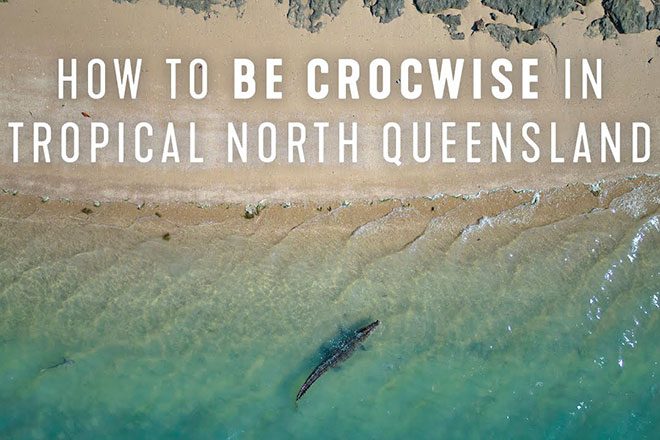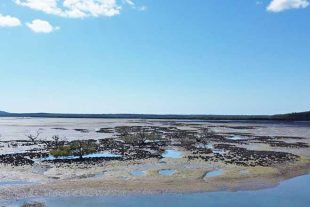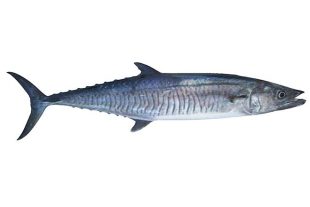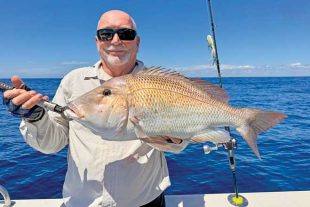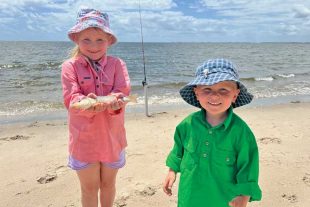Be Crocwise
Croc country (considered to be typical crocodile habitat) begins at the Boyne River south of Gladstone, and extends northward, up the east coast and across Far North Queensland. Crocodiles can sometimes also be found outside of croc country.
Just because you can’t see a crocodile, it doesn’t mean there is not one close by. Crocodiles can stay underwater for more than an hour. Even large crocodiles can be completely concealed in knee-deep water.
- Report all crocodile sightings as soon as possible even if you’ve reported the animal before by:
-using the QWildlife app available for iOS and Android
-accessing the sighting report online, or
-calling 1300 130 372 [select option 1] - Stay at least 5m from the water’s edge — Crocodiles often hunt their prey at the water’s edge.
- Dispose of your food and fish scraps in a bin — Don’t leave food, fish scraps or bait near the water, around your camp site or at a boat ramp. Crocodiles will be attracted by an easy meal, and this puts subsequent visitors to the area at risk.
- Do not feed crocodiles — It is illegal, dangerous, and teaches crocodiles to associate humans with food.
- Be extra cautious at night, dusk and dawn – This is when crocodiles are most active.
- The smaller the vessel, the greater the risk – Do not use kayaks, paddleboards and other small crafts in crocodile habitat areas, crocodiles have taken people from small vessels.
- Stay well away from crocodile trap – Croc traps are designed to attract hungry crocodiles so avoid fishing and boating near them and never interfere with them. People who deliberately interfere with the operation of crocodile traps face potential penalties of over $15,000.
- Dogs are attractive prey to crocodiles – Keep your pets on a lead and away from the water’s edge.
- Watch out for crocodiles in unusual places after very high tides and heavy rains – Crocodiles can move further upstream during very high tides and periods of flooding and may move into new areas where they have not been seen before.
- Breeding female crocodiles will defend their nests aggressively – September to April is breeding season for crocodiles.
- Crocodiles are more active during the warmer months of the wet season.
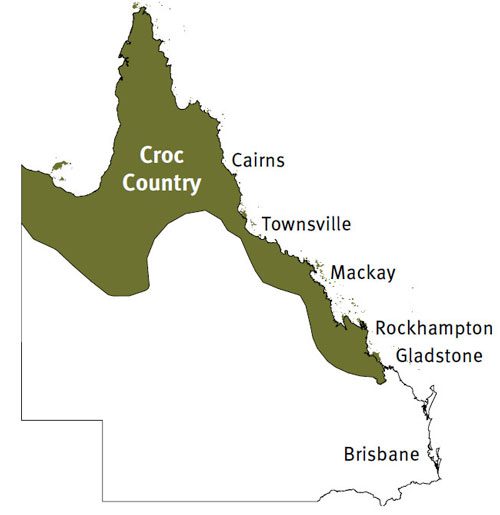
Fishing croc
- Stand at least 5m back from the water’s edge when fishing.
- Use an esky, tackle box or similar object as a barrier between you and the water.
- Leave the lure. People have been attacked while recovering a fishing lure. It’s not worth your life.
- Tie off your cast net to your boat. In the event that a crocodile is caught in a cast net, this will prevent you from being pulled into the water.
- Dispose of unused bait and fish scraps in a bin. Leaving potential food sources around for crocodiles to find has a similar effect as feeding them directly.
Boating and recreational watercraft
- Your boat is your barrier. Keep the boat between yourself and the water when launching or retrieving it and face the water whenever possible.
- Keep your arms and legs inside your boat at all times.
- Do not use kayaks, paddleboards and other small craft in crocodile habitat areas. The smaller the vessel, the greater the risk—crocodiles have taken people from small vessels.
Camping
- Camp at least 50m from the water’s edge. Crocodiles have attacked people at campsites too close to the water.
- Limit your time at the water’s edge when collecting water and don’t use the same spot repeatedly. Crocodiles are good at recognising repeated behaviours.
Swimming
No waterway in Croc Country can ever be considered crocodile free. If you must swim, reduce your risk:
- Swim between the flags at patrolled beaches. Visit the Beachsafe website(external link) to locate patrolled beaches in your area.
- Do not swim at dawn, dusk or at night when crocodiles are most active.
- Do not swim in murky water.
- Read and obey all crocodile warning signs.
- Understand that crocodiles usually hunt by staying submerged and can attack in knee-deep water so wading can still be dangerous.
- The removal of crocodiles in an area doesn’t eliminate the risk of an attack.
 Bush ‘n Beach Fishing Magazine Location reports & tips for fishing, boating, camping, kayaking, 4WDing in Queensland and Northern NSW
Bush ‘n Beach Fishing Magazine Location reports & tips for fishing, boating, camping, kayaking, 4WDing in Queensland and Northern NSW

